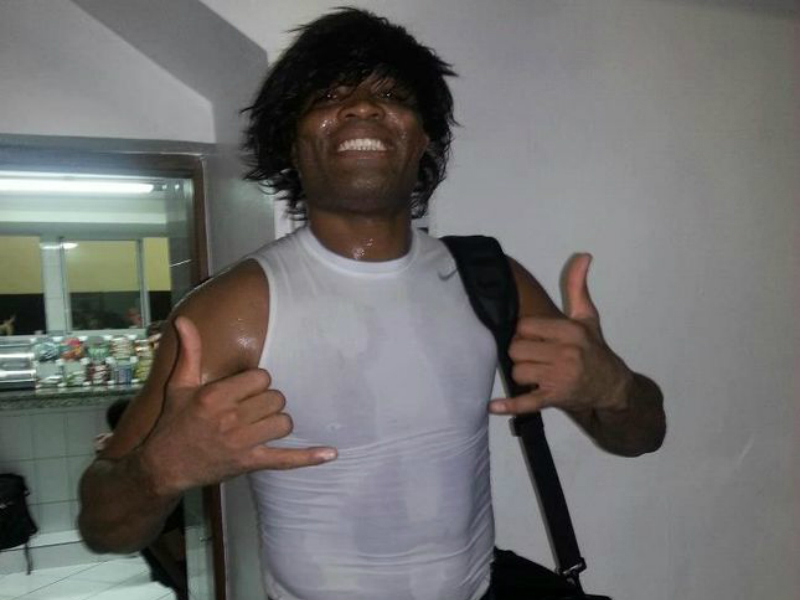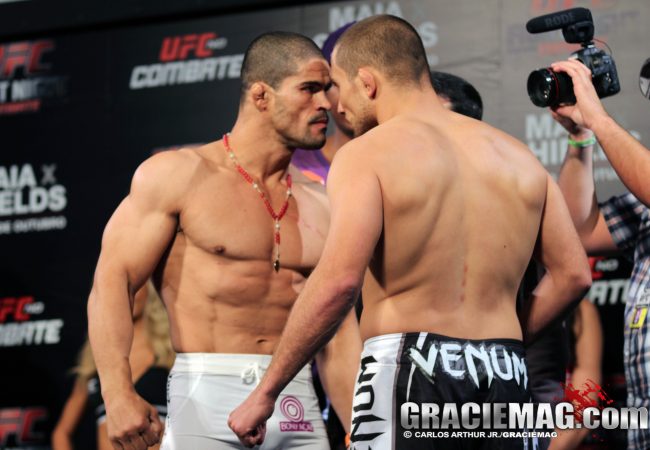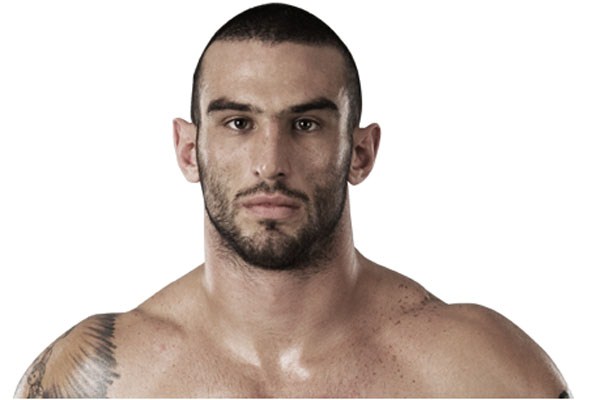Former UFC champion Anderson Silva underwent constant pressure over these seven years as the owner of the middleweight belt. Coming from humble origins, having worked at McDonald’s for a period of time, the impact of becoming one of the biggest names in MMA can have consequences in the athlete’s psyche.
Anderson became famous, very famous. He was the biggest in a promotion that also has Jon Jones, GSP and other true geniuses of the sport, and with the fame came the duties of a champion. Seven years of photos, autographs, harassment from the press, hundreds of appointments outside the cage, challenging opponents. Stones thrown from all sides.
To fathom to what extent this pressure may have affected Anderson’s mindset, GRACIEMAG talked to psychologist Eduardo Coelho.
“Anderson has a lot of confidence,” said Coelho. “Nobody puts their face out there to get hit with their guard down if they don’t have a lot of confidence in their chin and their skills. Of course, he knew there had to be someone out there who could possibly defeat him other than a clone of himself. But even against dangerous adversaries, Anderson stuck to his game under the weight of years of owning the belt and of million-dollar contracts.”
 As to the possible guilt being felt by Anderson, given his loss seemingly stemming from a careless posture, the psychologist has a couple of hypotheses.
As to the possible guilt being felt by Anderson, given his loss seemingly stemming from a careless posture, the psychologist has a couple of hypotheses.
“There are two possibilities: He either thinks that the defeat occurred because he overdid it with the taunting, or he thinks Weidman is actually better than him,” Coelho opined. “In this case I think he believes he lost due to error. He can’t let himself be consumed by the anger and guilt arising from having lost that way. And the question remains: What is Anderson’s motivation to keep fighting? That is what will be essential to his career and the way he’ll deal with pressure going forward.
“I don’t know Anderson, he is not my patient. So I do not know if he is disrespectful or provocative in his personal life. Or whether he is friendly and quick to smile in interviews, for example. He, like Muhammad Ali, is playing a part – and sometimes several. There are very good fighters who cannot fill a stadium like he does. Anderson attracts, he draws attention. But with that comes great pressure, against which he must possess great emotional endurance.”





